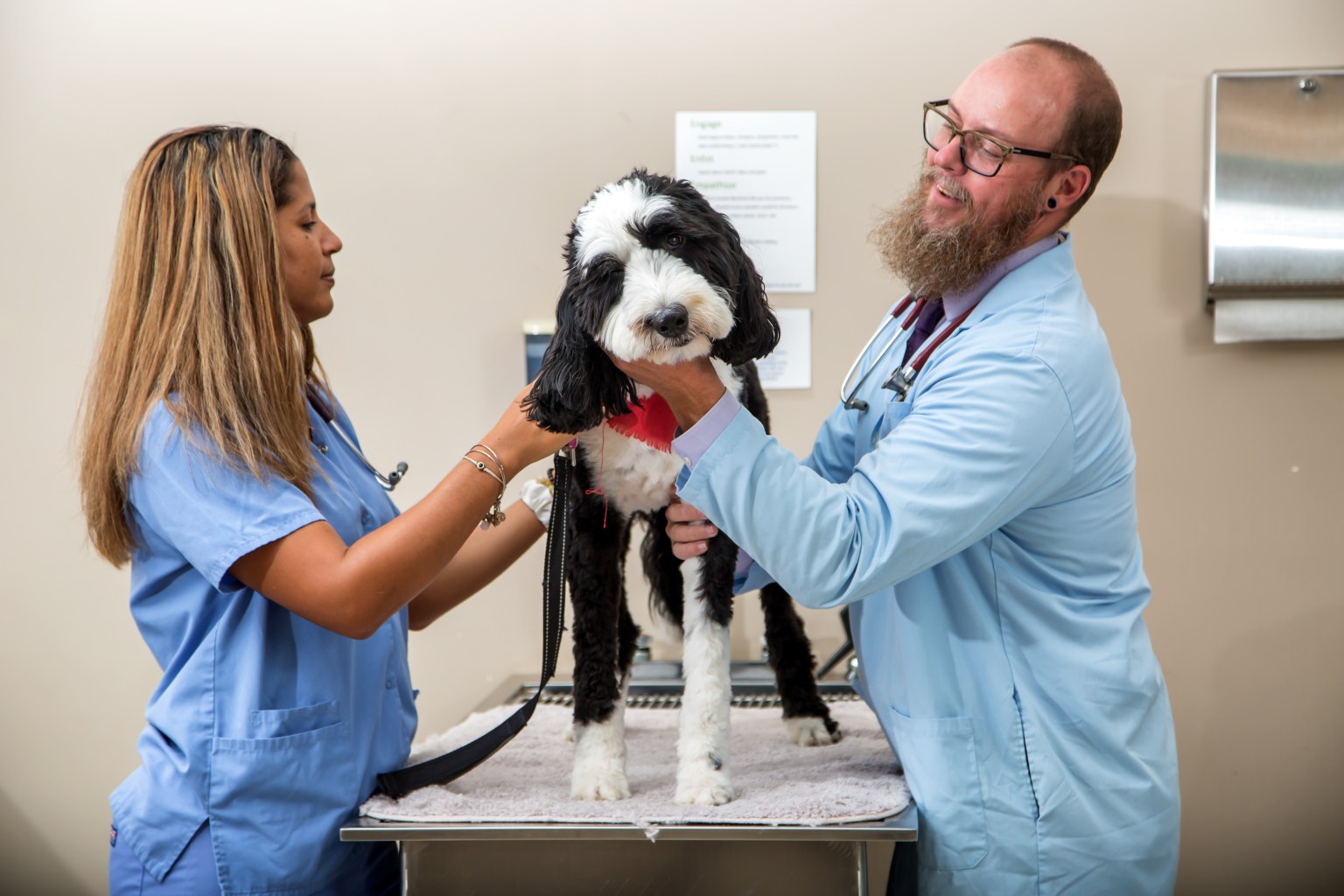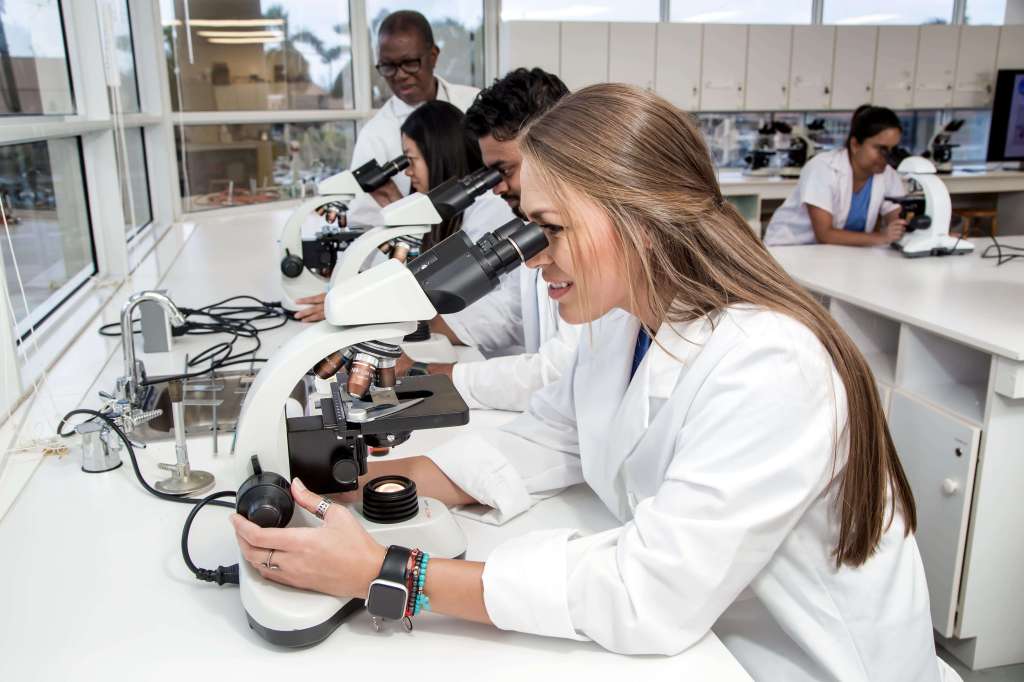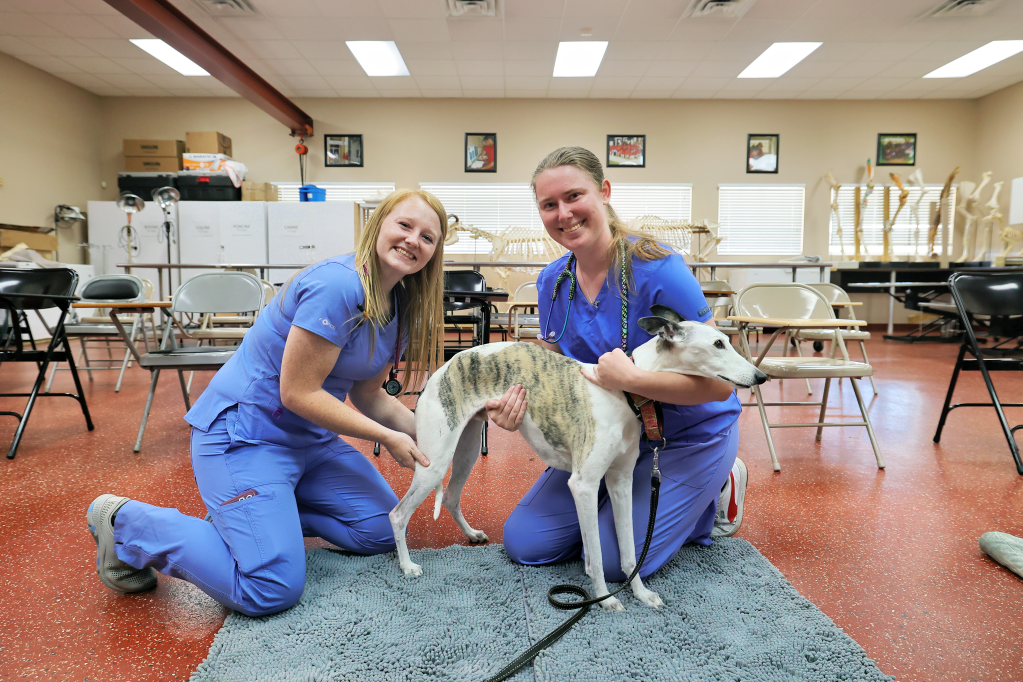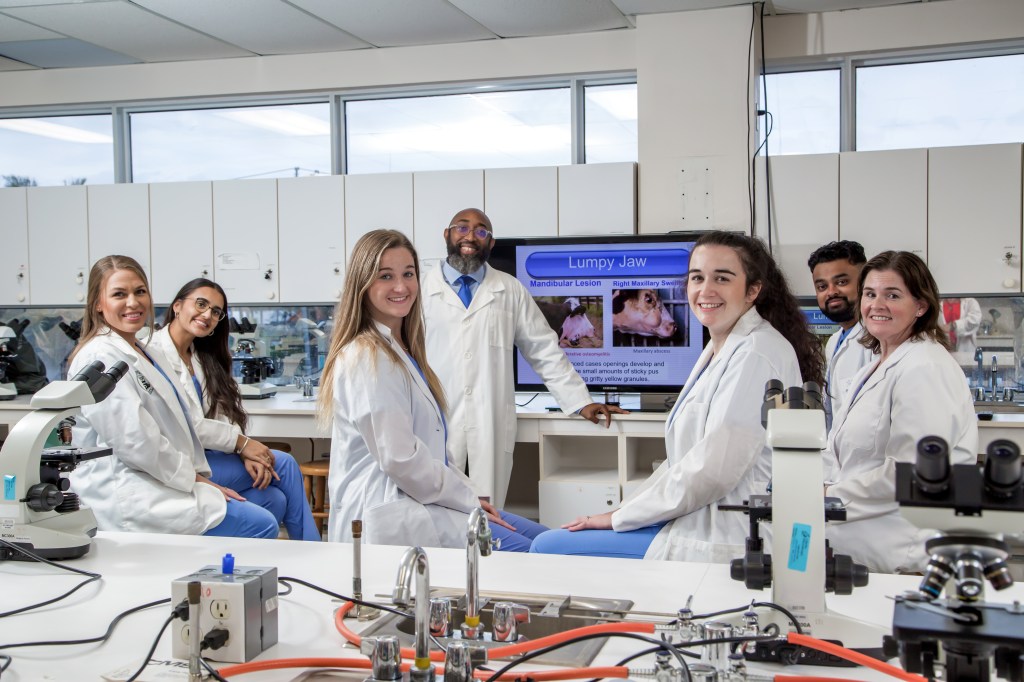
The Challenges and Rewards of a Veterinary Medicine Degree
Learn all about pursuing and working with a DVM degree.
If you are passionate about caring for animals, you have likely considered a career as a veterinarian and explored veterinary jobs.
The first step to entering the veterinary medicine field is answering the question: What is a veterinarian? Once you understand the responsibilities and demands of the profession, it is important to explore the education requirements to pursue a career as a veterinarian.
A Doctor of Veterinary Medicine (DVM) degree is often essential to becoming a veterinarian. The rewarding yet challenging program aims to prepare students for a diverse field of study.
Let’s explore what to expect from a Doctor of Veterinary Medicine degree and how you can turn your dream of looking after animals into a rewarding career.
What is a Veterinary Medicine Degree?
A Doctor of Veterinary Medicine degree offers students the academic foundation and real-world experience they need to become credentialed practitioners in the U.S. and Canada.
Offering foundational academic knowledge and training during Basic Sciences, students dive into the theory of veterinary medicine through lectures and laboratory sessions, while also preparing extensively for clinical rotations.
The Clinical Medicine aspect of the DVM degree allows students to apply their skills and knowledge in a real-world setting at veterinary colleges in the U.S. and Canada. During clinical rotations, students gain valuable experience in professional care settings while utilizing technology for diagnosing and treating real animal health conditions.
A Doctor of Veterinary Medicine degree covers diverse topics, from veterinary pathology to small animal surgery, preparing students for the demands and requirements of veterinary jobs.
Challenges of Pursuing a Veterinary Medicine Degree
Despite a veterinarian being a notably rewarding profession, the journey to securing veterinary jobs is not easy. The DVM degree presents numerous challenges for students, from the competitive nature of veterinary medicine to the financial investment required.
Here are the top challenges of pursuing a DVM degree:
Academic requirements:
The extensive curriculum often leads to a heavy workload and sometimes to information overload. Veterinary students must be organized and follow a flexible schedule to stay on top of their learning goals. The academic requirements demand knowledge in complex scientific disciplines, including physiology and anatomy. Students must also strive to absorb as much theoretical knowledge as possible to apply during clinical training later in the program.
Financial investment
Due to the longevity, advanced learning requirements and high operational costs of a DVM program, pursuing your DVM degree requires significant financial investment. The veterinary field is also very competitive, making it challenging to secure a high-earning role immediately after graduation.
Emotional and physical demands:
One of the most significant challenges in veterinary medicine is the emotional and physical toll it can take on practitioners. A DVM program regularly presents learning and study challenges, as students must keep pace with the demands of gaining one’s DVM degree. After graduation, veterinarians face stress and difficult cases, including sick and injured animals, which can be mentally challenging. The long, unpredictable hours and physical demands of both studying and practicing veterinary medicine can also lead to mental fatigue and physical exhaustion. Veterinary students should immediately begin practicing coping techniques, including regular exercise, healthy eating and relaxation methods like meditation and yoga, to benefit both their studies and eventual practice.
Work-life balance:
Another of the key challenges in veterinary medicine is maintaining a healthy work-life balance. Spending excessive time at work is often linked to the emotional and physical demands of being a veterinarian. That’s why it’s important for students to immediately begin implementing a healthy work-life balance during their DVM program, which can shape a healthy future lifestyle. With a demanding schedule, veterinary students must learn to juggle personal commitments and studies – doing so effectively will have a positive long-term impact on one’s career.



Rewards of a Veterinary Medicine Degree
You may wonder why a Doctor of Veterinary Medicine degree is so popular after reading about the challenges associated with a DVM degree. Simply put, many people believe that the rewards of a DVM degree significantly outweigh any associated challenges in veterinary medicine.
So, what are some of the rewards of pursuing a Doctor of Veterinary Medicine degree?
Making a difference in animal lives:
The motivation for most people pursuing a DVM degree is caring for animals and having a positive impact on their lives. This fulfilling aspect of the job makes the challenges worthwhile for animal lovers. Veterinary students can see firsthand how important veterinary jobs are to ensuring the welfare of animals and educating the public on how to look after animals responsibly.
Variety of career opportunities:
One of the rewards of pursuing a DVM degree is the variety of veterinarian jobs available to graduates. While exploring career opportunities in veterinary medicine, students will learn about a wide range of roles, from veterinary assistant jobs to veterinary dentists. Pursuing a Doctor of Veterinary Medicine degree will help you prepare for a career in veterinary medicine and open the door to various career paths that may appeal to you.
Job stability:
According to the 2023-2024 National Pet Owners Survey, 66% of U.S. households (86.9 million homes) own a pet, making veterinarians an essential part of society. Therefore, a veterinarian career provides job stability, with veterinarians playing an increasingly important role in the welfare of animals.
Lifelong learning and growth:
Veterinarians consistently remain at the forefront of veterinary medicine and are able to stay updated with the latest trends in the ever-evolving field. Championing lifelong learning, veterinary students continually expand their knowledge and develop in-demand skills to treat their patients. A Doctor of Veterinary Medicine degree lays a platform for lifelong learning within the veterinary medicine field.
Building strong client relationships:
When veterinary students embark on clinical rotations, they can see the importance of building strong veterinarian-client relationships with both owners and animals. Veterinarians are responsible for the health and well-being of pets, which leads to relationships built on trust and respect. Sharing personal moments with clients and pets also helps to build relationships and create a sense of unity.
Career Outlook for Veterinary Graduates
With a strong demand for veterinarians in various fields, the career outlook for veterinary graduates is very positive. From marine life to zoology, veterinary medicine is a diverse field, providing graduates with a wide range of career paths after completing a DVM degree.
As more and more people become pet owners, the demand for veterinarians also continues to grow. This leads to more veterinary job openings and greater diversity in career paths, including specialty care, private practices and wildlife conservation.
Veterinary graduates can also pursue various in-demand specializations, including dentistry and surgery, offering lucrative career paths and increased opportunities.
Skills Developed During a Veterinary Medicine Program
Veterinary students develop essential skills during a Doctor of Veterinary Medicine degree and can apply their skills and knowledge in practical, real-world settings.
Here are the main skills students can develop during a DVM degree:
- Clinical skills
- Research skills
- Analytical skills
- Surgical skills
- Communication skills
- Critical thinking skills
- Decision-making skills
- Interpersonal skills
Pursue a DVM Degree with St. Matthew’s University
If you agree that the rewards of completing a Doctor of Veterinary Medicine degree outweigh the challenges, it’s time to explore DVM programs and find a veterinary school tailored to your ambitions of becoming a successful veterinarian.
St. Matthew’s University School of Veterinary Medicine (SMUSVM) offers an accelerated DVM degree that provides the theory and real-world practice you need to develop the skills and knowledge required to thrive as a veterinarian in the U.S. and Canada.
SMUSVM offers veterinary education and early hands-on training, individualized support and experience with large, small and aquatic animals, all delivered by dedicated faculty who will guide you through every step of the journey. Our intentionally small class sizes and vibrant academic community all provide students a memorable veterinary school experience.
Want to know more? Find out what it’s like to study at St. Matthew’s University, on the island of Grand Cayman, from a current SMUSVM student:
If you’re ready to take the next step in your veterinary career journey, apply to SMUSVM today or contact us to learn more.
FAQs About Being a Veterinarian
There are many challenges in veterinary medicine, including the heavy workload, emotional and physical stress, and maintaining a healthy work-life balance. However, a survey by Royal Canin, involving 250 veterinarians from various countries, found that more than 40% of all veterinarians surveyed said administration was their main challenge.
Despite the challenges, there are many advantages of being a veterinarian, including the rewarding nature of the job, positive relationships formed with clients and the wide range of career opportunities to explore within veterinary medicine.
Those motivated to care for animals and who are passionate about animal welfare should consider pursuing a DVM degree and veterinary career. To secure long-term success in veterinary jobs, you should also have an interest in biology and medicine, and have a range of personal skills, including communication, decision-making, problem-solving and a strong work ethic.
The challenges most associated with careers in veterinary medicine are physical and mental stress, long work hours and the advanced education required to practice in the U.S. and Canada. However, with the right support, anyone with a passion for animal care can achieve their DVM degree and go on to a successful career in veterinary medicine.
Request Information